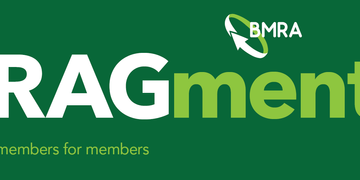Guidance for those in the Waste and Recycling sector
This article was submitted by Simon Carroll of BP Collins, a BMRA service member
The Government’s swiftly passed Coronavirus Bill became law on Wednesday afternoon. With many businesses facing growing uncertainty, the Coronavirus Act 2020 (“the Act”) implements wide ranging changes to help tackle the current pandemic.
Designed to help combat the Covid-19 outbreak, the scope of measures appear unprecedented since World War II; and although anticipated to be temporary and effective for two years, many changes could be open-ended, carrying an option to extend that period by six months exercisable any number of times.
But what does it mean for you? Well, although not a comprehensive assessment of the (now, 342-page) Act, businesses operating in the waste and recycling sector may wish to note following provisions:
Powers relating to events, gatherings and premises
Section 52 and schedule 22 grant powers to the Secretary of State (SoS) to close premises, or to restrict or prohibit “events or gatherings” of whatever means. Powers are exercisable where the SoS considers them necessary to deal with the pandemic, and after having regard to advice from the Department of Health and Social Care.
Directions appear likely be made only to owners, organisers, those “involved” in organising events, and those responsible for managing entry/exit. They must be given in writing to the person or company concerned, and may also be published at the SoS’s discretion to bring the directions to the attention of those affected.
If a person or business fails, without reasonable excuse, to comply with any direction, they will be guilty of an offence and liable on summary conviction to a fine. Furthermore, where an offence by a business is shown to have be committed with the “consent or connivance” of an officer (i.e. a director, secretary or other similar person) or it is attributable to any neglect on their part, that person will also be guilty of an offence.
Powers to suspend port operations
If the SoS considers there to be a “…real and significant risk that, as a direct or indirect result of the incidence or transmission of coronavirus, there are or will be insufficient border force officers to maintain adequate border security” section 20 and schedule 20 grant powers to direct ports (whether by air, sea, or rail) to close; and to direct the safe arrival of any vehicle, vessel or aircraft to an alternative port. Any person in England and Wales who receives such a direction and does not comply, without reasonable excuse, will be guilty of an offence and liable to a fine or a term of imprisonment.
Leave for Emergency Volunteers
Sections 8 and schedule 7 introduce a right for individuals to act as “emergency volunteers”, taking leave from employment for a period of two, three or four weeks, during any 16-week period. Workers and employees may do so by presenting an employer with an “emergency volunteering certificate” specifying the period of leave. Compensation for those employees is payable directly, under rules to be set out under section 9.
Although wages or salary are not payable during period of emergency leave, all other terms and conditions remain in effect, so they are entitled to the benefits and bound by the obligations of the rest of their terms and conditions of employment: this includes a right to return to work.
The new provisions will not apply where the worker is employed by an undertaking (i.e. business) with a head count of nine or less staff.
Statutory Sick Pay
Sections 39-44 provide for HMRC to make regulations which allow payments made by employers in in respect of Statutory Sick Pay (“SSP”) resulting from coronavirus to be funded by it. The specifics of such arrangements will be for HMRC to confirm, but the provisions can apply retrospectively from 13 March 2020.
It goes without saying that care will be needed by businesses continuing to trade, with governmental guidance changing quickly, enhanced SoS powers increasing the risk that non-compliant businesses will face consequences, and further commercial disruption likely in the short term. Businesses large and small will need to adapt quickly.
The Author
Simon Carroll
[email protected]
01753 889995



